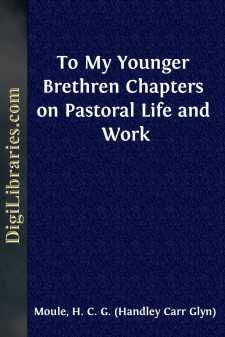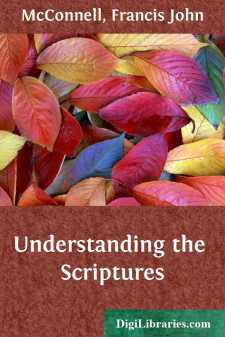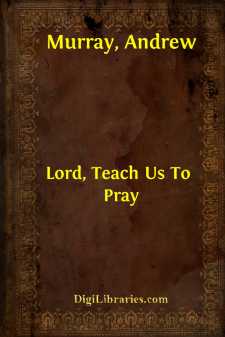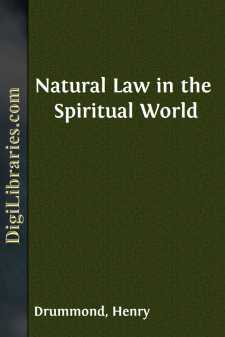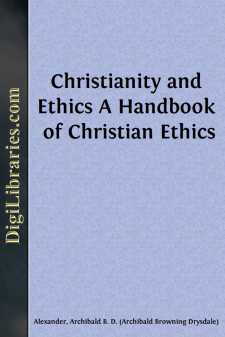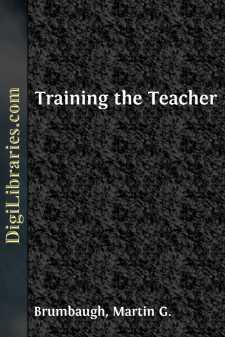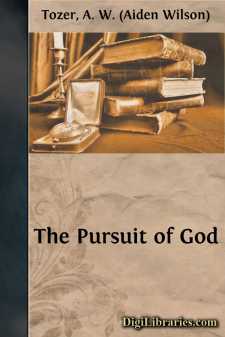Religion
- Agnosticism 2
- Antiquities & Archaeology 21
- Atheism 12
- Biblical Criticism & Interpretation 15
- Biblical Meditations 3
- Biblical Reference 1
- Biblical Studies 11
- Buddhism 8
- Christian Church 52
- Christian Education 5
- Christian Life 26
- Christianity 60
- Cults 2
- Devotional 6
- Eastern 2
- Education 4
- Eschatology 1
- Ethics 3
- General 60
- Gnosticism 1
- Hinduism 15
- History 28
- Holidays 10
- Inspirational 1
- Islam 8
- Judaism 3
- Leadership 1
- Meditations 3
- Monasticism 1
- Mysticism 11
- Philosophy 4
- Prayer 26
- Prayerbooks 5
- Religion & Science 12
- Sermons 54
- Spirituality 53
- Theism 2
- Theology 17
- Theosophy 15
Religion Books
Sort by:
CHAPTER I. THE SECRET WALK WITH GOD (i.). Pastor, for the round of toil See the toiling soul is fed; Shut the chamber, light the oil, Break and eat the Spirit's bread; Life to others would'st thou bring? Live thyself upon thy King. Let me explain in this first sentence that when in these pages I address "my Younger Brethren," I mean brethren in the Christian Ministry in the Church...
more...
CHAPTER I PRELIMINARY The problem as to the understanding of the Scriptures is with some no problem at all. All we have to do is to take the narratives at their face meaning. The Book is written in plain English, and all that is necessary for its comprehension is a knowledge of what the words mean. If we have any doubts, we can consult the dictionary. The plain man ought to have no difficulty in...
more...
THE WORK OF CHRIST THE Word of God reveals, that all things were created by and for the Son of God. “All things were made by Him and without Him was not anything made that was made” (John i:3). “For by Him were all things created that are in heaven, and that are in earth, visible and invisible, whether they be thrones or dominions or principalities or powers; all things were created by Him and...
more...
by:
Andrew Murray
The disciples had been with Christ, and seen Him pray. They had learnt to understand something of the connection between His wondrous life in public, and His secret life of prayer. They had learnt to believe in Him as a Master in the art of prayer—none could pray like Him. And so they came to Him with the request, 'Lord, teach us to pray.' And in after years they would have told us that...
more...
by:
Henry Drummond
PREFACE. No class of works is received with more suspicion, I had almost said derision, than those which deal with Science and Religion. Science is tired of reconciliations between two things which never should have been contrasted; Religion is offended by the patronage of an ally which it professes not to need; and the critics have rightly discovered that, in most cases where Science is either pitted...
more...
INTRODUCTION A PLEA FOR THE STUDY OF CHRISTIAN ETHICS If, as Matthew Arnold says, conduct is three-fourths of life, then a careful inquiry into the laws of conduct is indispensable to the proper interpretation of the meaning and purpose of life. Conduct of itself, however, is merely the outward expression of character; and character again has its roots in personality; so that if we are to form a just...
more...
The Bible 1. Methods of Bible Study.—Microscopic study of the Bible is the study of smaller portions, such as single verses, or parts of chapters. Many sermons adopt this method. It is good for many purposes. But it fails to give the larger views of Bible history that the teacher needs for effective work. The telescopic method takes in large sections of the Word, and considers them in their relation...
more...
by:
Adam S. Bennion
CHAPTER I PURPOSES BEHIND TEACHING Outline—Chapter I The worth of souls.—The Father's joy in the soul that is saved.—The teacher's responsibility.—Teaching, a sacred calling.—Our Church a teaching Church. Our three-fold purpose in Teaching: a—To guarantee salvation of the individual members of the Church. b—To pass on the wonderful heritage handed down by our pioneer...
more...
Introduction Here is a masterly study of the inner life by a heart thirsting after God, eager to grasp at least the outskirts of His ways, the abyss of His love for sinners, and the height of His unapproachable majesty—and it was written by a busy pastor in Chicago! Who could imagine David writing the twenty-third Psalm on South Halsted Street, or a medieval mystic finding inspiration in a small...
more...
by:
DadaBhagwan
Those seeking to lead a spiritual life will naturally ask themselves how to progress in spirituality, and how to live spiritual values. Must one somehow transcend good and bad, right and wrong? When does one’s spiritual development truly begin? By enlightened definition, the foundation of a spiritual life is a faultless worldview; and to achieve such vision, Self realization is required. In the book...
more...


